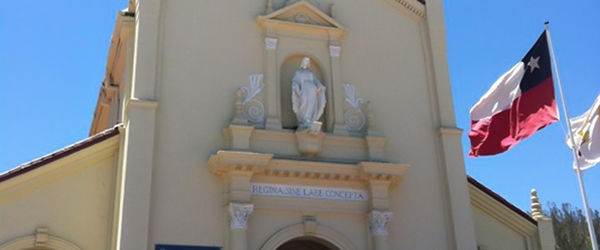Ultimate authority is the major impediment to Christian unity, greater than the real and profound differences between churches regarding priestly celibacy and the ordination of women, according to the longtime ecumenical officer for the Episcopal Diocese of New York.
"Obviously, our Lord is the final authority, but the question of how we perceive God's will for us is not an easy thing," said the Rev. Paul B. Clayton Jr., speaking Jan. 22 at Graymoor during the Week of Prayer for Christian Unity.
He said the Catholic Church has spent one and a half millennia developing the doctrine that gives universal and immediate jurisdiction to the bishop of Rome, while Orthodox, Anglican, Lutheran and Protestant churches make decisions through the action of councils and reject papal claims.
"I believe the basic ecumenical question now is how we take up (Blessed) John Paul II's challenge to find a common vision of primacy in the church," he said.
Rev. Clayton was the guest preacher at Sunday Mass and spoke to Catholic News Service afterward. He was one of seven ordained men and women invited to address groups at Graymoor during the worldwide observance of the Week of Prayer for Christian Unity Jan.18-25.
Graymoor is the headquarters of the Franciscan Friars and Sisters of the Atonement. The week is organized by the Pontifical Council for Promoting Christian Unity and the Faith and Order Commission of the World Council of Churches.
Since 1968, the two groups have met to choose a theme and prepare texts and resources for the observance. The theme for this year was, "We will all be changed by the victory of our Lord, Jesus Christ."
"Schism is a very wicked reality," Rev. Clayton said, but reunification of the Christian churches is inevitable, because it is the will of God.
"I have no idea how Christians are going to resolve the issue of Petrine ministry," he said, "but God's spirit in God's own time will lead us and it will be done in a way that the fundamental (historic) concerns will be resolved so each of those traditions can find their faith in it."
He said it seems impossible and will require prayer, dialogue and mutually respectful, affectionate friendships, "but with God, all things are possible."
Rev. Clayton traced the history of Christian division, from disagreements among the Apostles through the Reformation in the 16th century. Christians remained in "mutually anathematizing groups, each claiming to be the true church of Christ," he said, until the Episcopal Church offered a reunification proposal to Anglicans, Protestant and Eastern Orthodox churches in the late-19th century.
"The ecumenical movement received an enormous boost when the Roman Catholic Church became an enthusiastic participant after the Second Vatican Council in the 1960s and joined in dialogues" with other Christian groups, Rev. Clayton said.
Today, Rev. Clayton said, "changes within the various churches as they respond to the more secular world in which we find ourselves can bring and have brought new divisive developments into ecumenical discourse" and led some people to claim "the ecumenical movement is losing steam and falling backward."
Divisive issues include sexual ethics, gender roles, ordination of women as priests and bishops, abortion, social justice, liturgical changes and biblical exegesis, he said.
Over the past several years, the Episcopal Church, the U.S. member of the Anglican Communion, has approved ordaining women priests and bishops, ordaining homosexuals and blessing same-sex unions.
Nonetheless, Rev. Clayton said, "enormous progress has been made in our efforts to understand one another more fully in a charitable, noncondemning way and to find new theological language to put the old divisive theological issues into new perspective."
As an example, Rev. Clayton described how Anglicans and Catholics came to an agreement on the Eucharist. "We found new theological language and concepts to describe the Eucharist, in which both traditions could find their faith fully acknowledged and without contradiction."
"One of the principles of ecumenism is that we do everything together that we can," Rev. Clayton said. Anglicans and Catholics devised a marriage concordat used by both groups in situations where Episcopalians and Catholics marry one another, he said, and are currently trying to find ways to develop and use a common baptismal certificate.
He said different religious groups should logically address local social justice issues together, "because it's beyond the capacity of any one tradition and there's no reason we can't work together."
At Mass, Rev. Clayton said he met his wife, the Rev. Sharon Clayton, at the Graymoor bookstore during an annual conference of Episcopal clergy in 1987. She was serving as a priest elsewhere in the Episcopal Diocese of New York and they had a common interest in ecumenism. After their marriage, they served together at a parish in Poughkeepsie for 18 years. Rev. Clayton retired from the pastorate and his wife now leads a different congregation.
Rev. Clayton told CNS the establishment of the new ordinariate to serve former Anglican parishes and individuals entering the Catholic Church will have no effect on ecumenical relations.
"In America," he said, "there is a restless river of people moving back and forth between traditions," a river of both clergy and laypeople fed by personal concerns more frequently than theological issues.
---CNS

